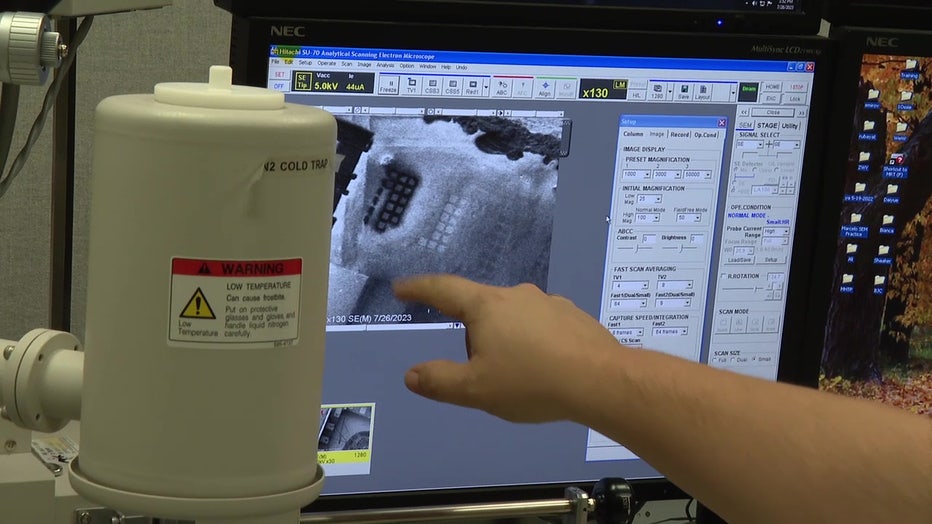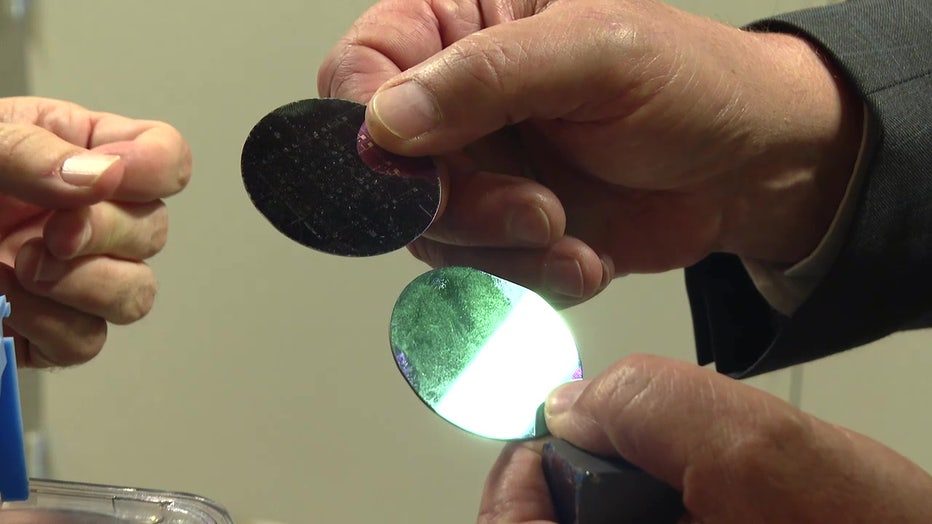USF adds semiconductor graduate certificate program as U.S. boosts chip research efforts
TAMPA, Fla. - Alex Otten is on the verge of getting his Ph.D. in electrical engineering at USF in Tampa.
Part of his focus is tiny semiconductors often called chips. They're in just about every device and vehicle we use, and they continue to change the world.
"No matter what field you're in, microprocessors or integrated circuits in general can only become more prevalent as times go forward," explained Otten.

USF started a graduate certificate program for the study of semiconductors.
The right chip carries the right electrical current through virtually everything we use. A shortage of chips caused a shortage of cars. National defense is also a concern.
READ: USF researchers study effectiveness of quarantines using remains from Black Death plague
Our warplanes won't work without the right semiconductors. Currently, the largest manufacturer of chips is in Taiwan.
Last August, the Chip Act was passed. It provides billions of dollars to boost research and manufacturing of semiconductors in the United States.

The U.S. is trying to catch up to other countries in microchip production.
"We have been wishing for this opportunity for years because we had the passion to see that this industry is growing," shared Arash Takshi, a USF electrical engineering associate professor.
READ: USF receives $8.5 million to help public health leaders address post-pandemic challenges
USF recently started a semiconductor graduate certificate program. Experts believe thousands of new jobs will be created as the U.S. tries to catch up in the research, design, and manufacturing of microchips.
"As an engineer, as somebody who is researching in a lab, I don't want to go out and do just the testing of it, I would want to put my hands on and say yes, we did this," said Nirmita Roy, who expects to earn her Ph. D. in the coming months.
There are high hopes for bringing home the tiny chips for America's economy and its defense.

